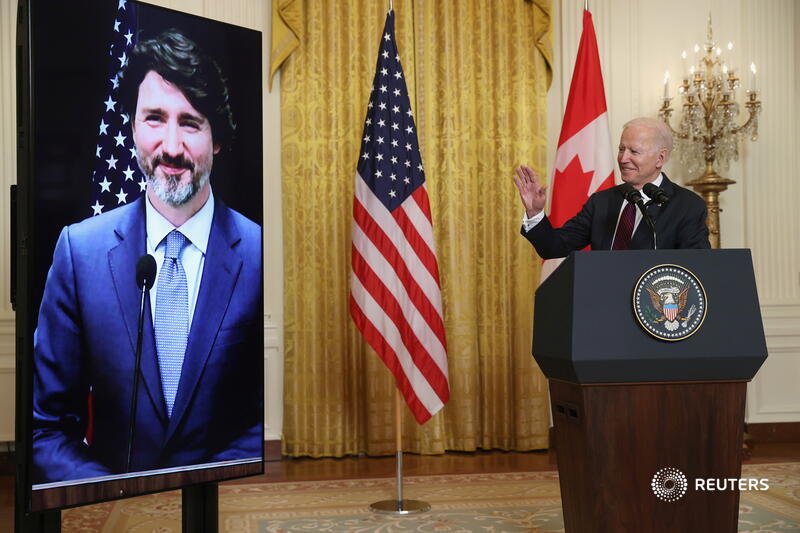Biden and Trudeau Meeting Signifies Hope for Environmentalism
On Feb. 23, President Joe Biden and Canadian Prime Minister Justin Trudeau held a virtual meeting to discuss climate change and shared policy priorities. In January, Biden blocked an order to finish the Keystone XL Pipeline project, halting an $8 billion endeavor that would have had a substantial negative impact on the environment. This move was a win for environmentalists and Indigenous activists alike — the pipeline would be a direct source of pollution across the 1,179 miles of land it was intended to occupy. Additionally, Native American activists have voiced their opposition to the pipeline and protested against it since its proposal, as it would cross the territories of numerous tribes that did not support its construction. Biden’s decision is a good step in the fight against climate change and a welcome change from former President Trump’s goal to finish the pipeline.
Biden’s meeting with Trudeau went well, with both leaders emphasizing the close relationship between the United States and Canada. However, neither directly addressed the Keystone XL Pipeline. Trudeau has previously expressed his support for the pipeline and was therefore disappointed by Biden’s decision to end its construction.
Despite the let down for Canada, the meeting signified a change in the tone of recent U.S. and Canada relations; Trudeau often disagreed with Trump on matters of social and economic policy. Under the Trump administration, the U.S. sparked a trade war after imposing high tariffs on steel and aluminum in 2018, and Canada responded with retaliatory tariffs on U.S. goods. Despite the barbs that Trudeau and Trump sometimes exchanged, the prime minister seemed glad to collaborate on Biden’s first bilateral meeting with a foreign leader since taking office.
While the leaders could have addressed the pipeline, the tone of the meeting was focused more on their mutual eagerness to work together to address climate change. Trudeau commended Biden on rejoining the Paris Accord early in his term, and both agreed to work towards accomplishing net-zero emissions for Canada and the U.S. by 2050. The focus seemed not to be on the disappointment of the pipeline for Trudeau, but more on the readiness of both administrations to work together to combat climate change beyond the project.
With the end of the Keystone pipeline, Canadians and Americans have expressed concerns about the consequences of canceling such a massive project that would help transport thousands of gallons of crude oil internationally. Some have argued that the cancellation of the pipeline will result in higher gas prices for American citizens. However, experts have stated that the loss of the pipeline probably won’t affect U.S. consumers, although it might make transportation of crude oil costly for producers. Biden and Trudeau seem to understand that Canada and the U.S. have certain goals cut out for them in terms of climate change prevention, and Biden has been acting with some level of urgency — first rejoining the Paris Accord, then canceling the pipeline. Steps like these are important for environmentalists but also for the good of our country and our world as we consider looming issues of climate change. Trump rejected concerns raised by activists such as Greta Thunberg during his presidency, so Biden’s focus on cleaner environmental practices did not go unnoticed by Trudeau, who said “U.S. leadership has been sorely missed over the past years.”
Biden’s renewed focus on tackling climate change is more urgent than ever, so the meeting between Canadian and U.S. leaders demonstrating a mutual commitment to combating this global concern was a significant step. Additionally, Biden and Trudeau have exhibited a strong willingness to work together, despite the cancellation of the pipeline. The end of the pipeline is a win in the battle against climate change, as it would have wreaked havoc upon the surrounding environment and its inhabitants. It also would have occupied miles of Native American land. Although neither leader discussed it outright in the meeting, Trudeau seems to generally support Biden’s approach to environmentalism. Hopefully Biden will continue to take actions that encourage the use of renewable, sustainable and accessible energy in this country, as well as defend and protect the environment from corporate interests and investments that might do more damage to the planet than good for the economy.
Claire McHugh, FCRH ’23, is an English major from Chicago, Ill.










































































































































































































